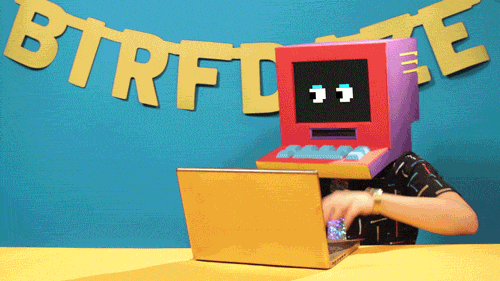If you had a hundred potential customers, how many of them would end up being your clients? Have...
How to implement AI in car dealerships without complications
¿s your dealership overwhelmed with inquiries, losing valuable leads, or struggling to respond outside business hours? You're not alone! Fortunately, the solution already exists… and it's called artificial intelligence.
That's right—chatbots for dealerships are quickly becoming the best ally to improve customer service in the automotive industry. But be careful: implementing a chatbot poorly can be worse than not having one at all. 😬
It can frustrate customers, cost you sales, and damage your brand's reputation. Automating doesn’t mean dehumanizing… and that’s the key.
This post shows you how to do it right from the first click: a simple guide to implement an AI chatbot in your dealership, enhance customer service, free up your team, and increase your sales opportunities. Without complications. Let’s get started!
Virtual Assistants for Dealerships: Why They’re Key to Improving Customer Service
Digital transformation in the automotive sector is no longer optional—it’s an urgent necessity. And virtual assistants for dealerships are leading that change because they enable your business to be present wherever and whenever the customer needs you, regardless of business hours or team size.
Let’s look at some key data:
-
100% of dealerships that adopted AI solutions reported revenue increases over the past year.
-
55% achieved increases of 10% to 30% in 2024 alone.
-
While only 10% of traditional dealerships respond to a lead in under three hours, an AI chatbot responds instantly, 24/7.
The result? More captured opportunities, fewer lost prospects, and a customer service experience that truly feels modern, efficient, and trustworthy.
Moreover, today’s chatbots are nothing like the rigid machines of the past. They can hold natural conversations, learn from each interaction, and adapt to your brand’s tone and personality. They're the first step to offering fast, helpful, and personalized experiences from the very first contact.
Practical Guide to Implementing an AI Chatbot in Dealerships
.gif?width=480&height=270&name=image%20(8).gif)
Implementing a chatbot for dealerships is simpler than it seems—if you have clarity at each stage. This guide shows you how to do it right from the start.
1. Define the Main Objective
Before choosing a solution, it's essential to understand what you're aiming to solve. Is your priority to improve customer service at your dealership? Automatically schedule test drives? Or free up your team from repetitive tasks? You might also want to recover inactive leads or qualify prospects in campaigns. The clearer the objective, the more effective the implementation will be.
2. Select the Right Channels
Not all dealerships use the same communication channels. Some prioritize their website, others WhatsApp or social media. The virtual assistant must be present where your customers initiate contact. With Darwin, for example, you can integrate the chatbot across all these channels and maintain a unified conversation history.
3. Load Frequently Asked Questions and Key Flows
80% of inquiries are repeated: business hours, available models, prices, financing, delivery. Set up clear answers for each one. You can also add specific flows like “Schedule a test drive,” “Request a quote,” or “Check stock.” This way, the AI chatbot doesn’t just respond—it takes action.
4. Adjust the Assistant’s Tone
Not all dealerships have the same style. Some are more formal, others more casual or technical. A virtual assistant for dealerships should reflect that tone to build trust. Make sure your tool allows you to personalize the language, use emojis if appropriate, and match your brand’s personality.
5. Connect It with Your Tools
A good chatbot doesn’t just chat—it acts. Integrating it with your CRM allows automatic lead registration. Connecting it to your calendar enables test drive scheduling without human intervention. It can even generate quotes, route to the appropriate salesperson, or initiate financing procedures. This turns the bot into an active part of your operations.
6. Evaluate and Continuously Optimize
Once it's live, track its performance. How many conversations does it resolve without help? How many leads does it qualify? How many appointments does it schedule? With these metrics, you can improve workflows, adjust responses, and identify opportunities to maximize its impact. Continuous improvement is the key to success with dealership chatbots.
Common Mistakes in Dealership Chatbot Implementation and How to Prevent Them
Adopting an AI chatbot at your dealership can transform customer service—but only if done right. Here are the most common mistakes so you can avoid them from the beginning.
❌ Mistake 1: Expecting the bot to do everything from day one
Many try to automate everything at once, which often leads to confusion and poor results. It’s better to start with key flows (like FAQs, test drive scheduling, or sales transfers) and then scale based on demand and learnings.
❌ Mistake 2: Using a generic or non-customized chatbot
A bot without personality or poorly adapted to the automotive industry provides vague or irrelevant answers. A virtual assistant for dealerships must understand typical sector processes—from checking inventory to initiating financing.
❌ Mistake 3: Not integrating it with existing systems
If the chatbot isn’t connected to your CRM, calendar, or communication channels, it becomes an isolated solution. True efficiency comes when the bot automates complete processes and reduces the team’s operational burden.
❌ Mistake 4: Forgetting follow-up and continuous improvement
A chatbot is not a “set it and forget it” tool. It requires regular measurement and adjustments to improve performance. Does it respond effectively? Qualify properly? Route on time? Optimization is a key part of successful AI chatbot implementation.
5 Benefits of Using Chatbots for Car Dealerships
.gif?width=480&height=480&name=image%20(10).gif)
When a chatbot for dealerships is well implemented, the results are felt quickly. Here are some improvements that many car dealerships experience within the first few weeks:
✅ Higher Lead Conversion
Thanks to instant, 24/7 responses, more prospects move forward in the sales process. Responding quickly builds trust and reduces lost opportunities.
✅ Reduced Operational Load
The virtual assistant for dealerships can handle up to 45% of repetitive inquiries, freeing up your team from basic tasks and allowing them to focus on closing deals and managing more complex relationships.
✅ Increase in Scheduled Appointments
Automating the scheduling of test drives and sales visits speeds up appointment management and improves attendance rates.
✅ Better Customer Experience
With personalized attention, natural language, and continuous availability, customer satisfaction improves significantly. This leads to more referrals and customer loyalty.
✅ Fewer Administrative Errors
When the bot is integrated with your systems, it can collect and process information without mistakes—generating quotes, reminders, or referrals with accuracy.
Darwin AI: The AI Solution That Gets Up and Running in One Week
Implementing an AI chatbot with Darwin isn’t a complex technical project. It’s a solution designed for sales, support, or marketing teams that want results without complications.
Darwin offers you:
-
Launch in less than a week
-
Integration with WhatsApp, website, and social media
-
Training with no programming required
-
Adaptation to your brand’s tone
-
Connection with CRM, calendars, and quoting tools
-
Natural and customizable conversational flow
From answering FAQs to scheduling a test drive or transferring to a salesperson, Darwin transforms your dealership’s customer service into a modern, agile, and effective experience.
Quick Guide to Implementing an AI Chatbot in Dealerships
| Step | What to Do | What to Avoid | Immediate Benefit |
|---|---|---|---|
| 1. Define objectives | Establish whether you want to schedule test drives, improve customer service, or qualify leads. | Automating everything without a strategy. | Clear focus, better flow configuration. |
| 2. Choose channels | Deploy the bot on your website, WhatsApp, and the social media platforms most used by your clients. | Limiting it to one or rarely used channels. | Greater reach and availability for the customer. |
| 3. Load FAQs and flows | Include frequently asked questions + useful actions like scheduling, quoting, and checking inventory. | Vague or generic answers. | More helpful support, better-guided leads. |
| 4. Adjust the tone | Adapt the language to your brand’s style: formal, friendly, technical, etc. | Using robotic or impersonal responses. | Consistent and trustworthy customer experience. |
| 5. Integrate systems | Connect it with your CRM, calendar, quoting tools, and sales system. | Leaving the bot isolated without access to your processes. | Real automation, less manual work. |
| 6. Measure and improve | Review metrics, update flows, test improvements. | No follow-up or post-launch adjustments. | Better bot performance, more efficiency and results. |
Chatbots for Dealerships: Improve Your Customer Service with AI Starting Today
Implementing an AI chatbot isn’t just another tool—it’s a strategic shift to enhance your operations, increase sales, and deliver the level of service your customers expect today.
Whether you're looking for efficiency, more sales, or effortless 24/7 support, the time to act is now.
👉 Ready to see how a virtual assistant can transform your dealership?
Request your demo and get started in less than a week.
.png)







